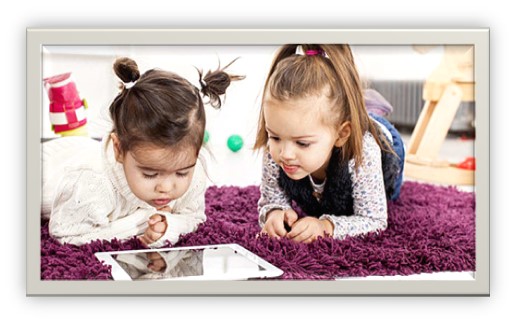During World War II, British children were evacuated and put into orphanages to keep them safe. René Spitz and others assessment of these children’s reaction to separation showed that the essential component of social interactions with other humans is necessary for a child’s development. They found that displaced children “experienced stunted development related to height, weight, motor skills, functioning, emotions, relations, and affective expressions.” Some of these children died due to developmental decline that was irreversible; the culprit was the lack of relationships and love from caring individuals. Many of those who survived and attained adulthood were unable to cope because they could not form relationships with others.
Our God is a relational God; He created humans to relate to Him and to each other. Genesis 2:18 affirms our need for human relationships was present in the first Adam: “Then the LORD God said, ‘It is not good for the man to be alone; I will make him a helper suitable for him.’”
Just as God planned, babies’ brains are wired to be in relationships from birth—not just any relationships, but relationships that are responsive to their interests and needs. The infant brain literally grows within these supportive, nurturing relationships. Interactions with people and the environment cause connections in the brain to form and strengthen (National Scientific Council on the Developing Child, 2004).
Infants and toddlers who frequently use electronic devices do not learn about things of the soul – what makes them who they are: beings created in God’s Image.
In Anatomy of the Soul, Curt Thompson writes: “While connection may not be our top need for immediate physical survival, our Creator has formed us in such a way that there is nothing more crucial to our long-term welfare. In fact, virtually every action we humans take is part of the deeper attempt to connect with other humans” (p. 109).
Interaction with and attention from caregivers, especially parents, are important relational qualities necessary for young children to thrive, bond, and trust others. Children need to not only be told they are loved but to be shown they are loved. How? by playing with them, being vested in their interests, encouraging their thoughts, dreams, and activities. The desire to survive and thrive, especially in children, is dependent on human interactions from those who spend time with and love them (Turner, 2019).
Therefore, it is not a surprise that the American Academy of Pediatrics, the World Health Organization, and other organizations with vested interest in children suggest NO screen time for infants and toddler! Their suggestion has its roots in the development of the whole child – socially (relationally), emotionally, physically, cognitively, and spiritually. Parents have been duped into using electronics as a babysitter and as a stimulus to their brain while such devices do nothing more than entertain their children; the misinformation lies in the fact that electronics cannot take the place of human interaction and human mediation. Despite warnings as far back as the beginning of the 21st century, parents continue to put their children’s relationship with them and others in jeopardy.
The results of a survey of U.S. adults conducted by the Pew Research Center (2020) validates the overuse of digital devices by children ages 0-2 (this chart only shows 0-2 year old).

The research also revealed that a majority of parents say their child watch videos on YouTube with 57% of age 0-2 falling in this category. 31% said their child began engaging with their smartphone before they were 2 years old and 6% said their child had his own smartphone by age two.
Such research makes one logically conclude that parents continue allowing their infants and toddlers to use digital devices because: (1) they are not familiar with the negative aspects of using digital devices; (2) they justify the use of such devices by believing toddlers and infants need to know how to use them; or (3) they are complacent about the negative effects because their personal convenience is more important than their relationship with their child. They are not asking: What happens when a baby/toddler bonds with an electronic device rather than a human being?
In High Risk: Children without a Conscience, Ken Magid and Carole McKelvey give a plethora of positive things parents can do to help a young child develop a relationship with them and others (pp. 250-251, paraphrased):
- Exhibit positive interest in baby at birth and is eager to interact
- Hold, caresses, and respond to infant’s vocalizations
- Make positive statements about baby
- Balance stimulation and quiet time – time for play (together) and rest
- Establish frequently face-to-face positioning with eye contact and smiles
- Display satisfaction with being a mother
This list begs a question that requires an honest answer: Which electronic devices can take the place of each these requirements? The simple answer is, “Not one!” Magid warns, “What happens, right or wrong, in the critical first two years of a baby’s life will imprint that child as an adult. A complex set of events must occur in infancy to assume a future of trust and love . . . the most important event occurring during the first year is the formation of these social attachments” (p. 3).
Our society is experiencing the same nurturing issues experienced throughout history – children were not and are not nurtured by humans. The end results are the same as if they are being raised in a deprived environment. Since electronics are “neutral,” infants and toddlers “react” to them but there are no positive human responses that cause their human attributes as God’s Image Bearers to flourish. The user receives negative or positive feedback if he pushes the right buttons, but he does not experience human intervention that builds his character and personal well-being. In order to develop healthy emotional well-being and godly character, parents or/and other care givers must mediate for the infant/toddler. A child can love his computer or electronic devices, but those devices do not love him back nor do they mediate for him in a world that requires human interaction for wholeness of body, soul, and spirit.
Developing Human Relationships in Infants and Toddlers in a Digital World
Digital devices can be great tools of learning – It would be ignorant of me to deny the fact that parents will continue to use them because of their convenience and because we live in a digital world. But never forget that your children NEED your attention. YOU are the mediator between them and all that they experience. Raising an emotionally and socially healthy child is a privilege and a responsibility given by God.
Here are some things you can do to foster relationships in a digital world with your infant and toddler.
- Many infants and toddlers respond more to inanimate objects (i.e., their electronic devices) than they do to humans. Limit screen time to less than an hour a day. You are the one forming their habits; you are in control of what they do and ultimately the one who teaches them about human relationships.
- Look at your baby/toddler when feeding him– NOT your cell phone. “The mediational process starts very early with an important activity of the child. It starts by offering the child the possibility to focus visually, to create a relationship by making eye contact with the parent or caretaker and is important for normal development” (Feuerstein, p. 15).
- You, the parent, should have a designated time and place to use your smart phone and other devices. Some suggestions: track your screen time, turn off your phone notifications, delete apps you don’t use, set an allotted time for no devices, resist the temptation to check your phone throughout the day.
 Designate a time and a place for your child to use his digital devices. Put all electronic
Designate a time and a place for your child to use his digital devices. Put all electronic
devices in a special place. Even when in use, be there as your child’s advocate and human mediator. Limiting use of electronic devices with mom or dad talking and interacting with the child can and should be rewarding.- Focus on each other during family meals by having the tv off and all electronic devices put away. Talk about the day. I placed my babies right in the middle of the table in an infant seat so they could be part of the family. An infant feels loved and part of the family when they are among people who enjoy each other. Supper table communication develops relationships; and, even before a baby can talk, he can respond to other human beings!
- Engage your child in play. Electronic devices are not “play” – they are entertainment – because they do not foster imagination, thinking, creativity, nor healthy emotion. Laugh, have fun, smile, model – this is your opportunity for parenting and building a relationship with him.
Remember: electronic devices do not and cannot hold, caress, respond, interact, be positive (electronics are neutral), exhibit face-to-face human contact, or display human satisfaction. ONLY a loving parent and loving caretakers fulfill these needs. You, as a loving parent, reflect the character of God that your child was created to reveal.
In my next blog I will discuss the effects of screen time on language development. You are welcome to make comments below.
References
Feurstein, Reuven, Lois H. Falik, & Refael S Feuerstein. Changing Minds & Brains: The Legacy of Reuven Feuerstein: Higher Thinking and Cognition through Mediated Learning. NY: Teachers College, 2015.
Magid, Ken and Carole A McKelvery, High Risk: Children without a Conscience, NY: Bantam Books, 1987.
National Scientific Council on the Developing Child, Young Children Develop in an Environment of Relationships, Cambridge, MA: Harvard University, 2004.
Pew Research Foundation. March 2-15, 2020, “Parenting in the Age of Screens,” See: https://www.pewresearch.org/internet/2020/07/28/parenting-children-in-the-age-of-screens/.
Thompson, Curt, Anatomy of the Soul: Surprising Connections between Neuroscience and Spiritual Practices That Can Transform Your Life and Relationships, Carrollton, TX: Nunn Communications, Inc, 2010.
Turner, Richard, “How screen time affects the parent-child Relationship” found in Margaret Mary Health (June 7, 2019) retrieved from https://www.mmhealth.org/community/news/how-does-screen-time-affect-infant-and-toddler-development/ on 8/11/21.


 https://www.mirror.co.uk/science/you-should-never-your-baby-9935251
https://www.mirror.co.uk/science/you-should-never-your-baby-9935251
Share this entry